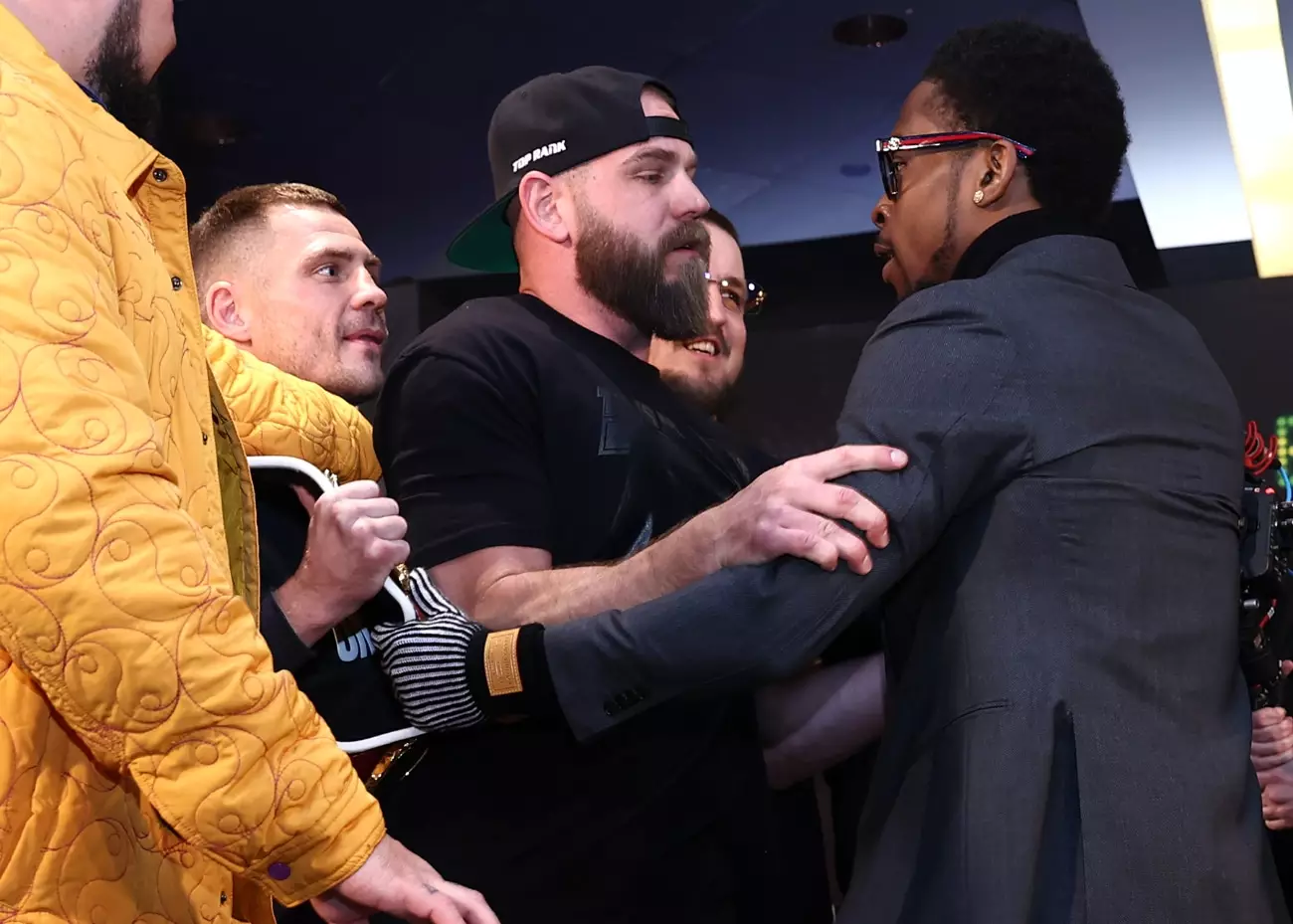In the world of professional boxing, rivalries often lead to highly publicized conflicts that capture the attention of fans and media alike. Recently, a peculiar incident involving Keyshawn Davis and Denys Berinchyk has sparked outrage and raised questions about intention and accountability. The crux of the controversy stems from a delivery of bananas and watermelons to Davis’ hotel room, which he hastily attributed to Berinchyk, labeling him a “racist” without any substantiating evidence. Davis’ unfounded accusations have brought into focus not just the nature of their rivalry, but also the serious implications of making such claims without proof.
Keyshawn Davis, who has been on a rapid ascent in the boxing world, appears to have taken the prank to a personal level when he accused Berinchyk of sending the provocative gift. While some speculate about the motivation behind this dramatic episode, Davis’ allegations draw significant concerns regarding character assassination in sports. The term “racist” holds grave weight and can irreparably damage an individual’s reputation and career. In this case, if Davis had no credible evidence to support his claim, he arguably harmed Berinchyk’s standing based purely on conjecture.
It’s vital to recognize that accusations have consequences. They can shape narratives that affect not only athletes but also the broader community—whether it be fans, sponsors, or media outlets. By multiplying the potential for reputational damage, each unfounded assertion can ripple across the sport, fostering a toxic atmosphere in which athletes feel pressured to defend themselves from unsubstantiated character attacks.
Teofimo Lopez’s snicker-filled social media response to the situation added another layer to this drama, drawing the attention of a wide audience and amplifying the incident further. Fans began to speculate whether Lopez might have been the anonymous sender of the fruit basket, fueling the fire of this already volatile situation. In an era where social media plays an integral role in shaping public discourse, the line between humor and accusation can often blur, leading to misunderstandings and escalating tensions.
The potential for miscommunication highlights a significant issue; while sports can be a platform for playful rivalries, they can also provoke serious discussions when the risks of spreading false information arise. Social media enhances the reach of these situations, allowing for swift reactions that might miss the nuances of the initial incident. Therefore, athletes must exercise caution with their words and actions, lest they inadvertently contribute to a harmful narrative.
Davis’s remarks following the public fallout reveal his ambitions as a competitor. He stated, “I just feel winning a world title will make me the best,” showcasing his drive to achieve greatness in the boxing arena. However, the context in which he chooses to frame his desire for titles matters. If he is willing to publicly disparage a fellow fighter in hopes of elevating his own status, it speaks to an ethical dilemma pervasive in competitive sports. While seeking matchups that can place an athlete on a higher pedestal is not uncommon, the methods employed to achieve such aims are crucial.
Furthermore, Davis’s apparent selective pursuit of opponents raises eyebrows about his strategic choices in bouts. His hesitance to face ‘risky’ opponents like Andy Cruz, in stark contrast to his eagerness to challenge Berinchyk, suggests a calculated approach to his career. This raises ethical questions about the responsibility athletes have, not just to their aspirations but also to the integrity of the sport itself.
The controversy surrounding Keyshawn Davis and Denys Berinchyk serves as a potent reminder of the complex interplay between competition, ethics, and social media in today’s sports landscape. While rivalries can motivate and energize the athletic community, they must not devolve into unfounded accusations that can tarnish reputations without recourse. The importance of accountability cannot be overstated; athletes, like all public figures, have a responsibility to wield their influence wisely and justly. As the boxing world continues to evolve, it is imperative for athletes to remember that character matters as much as skill.


Leave a Reply